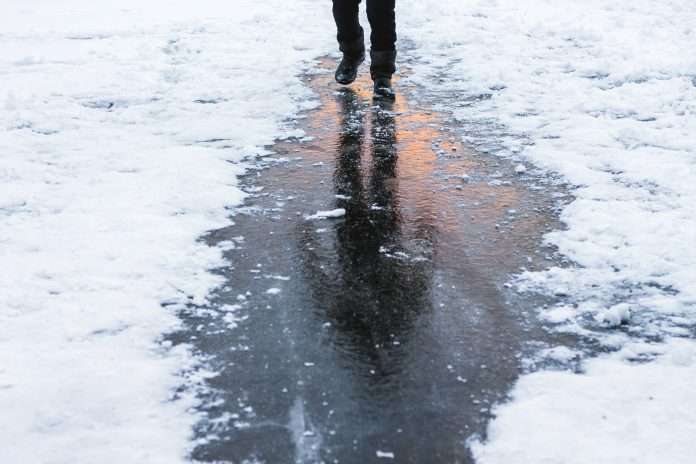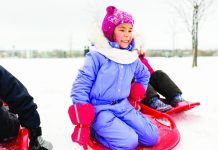The winter months can be a great time to get outdoors and be active. But the cold, snow, and ice can present challenging conditions that put individuals at higher risk of experiencing a fall.
Melting snow can freeze overnight, forming a thin layer of ice that is hard to see. The ground can then become very slippery in the morning when the ice starts to melt. In months where the ground is frozen, ground frost and ice can make it slippery for walking. No matter how well the snow is removed from parking lots or sidewalks, there will still be slippery places.
It’s important to keep your safety in mind to avoid slips, trips, and falls.
Tips To Prevent Falls and Other Injuries
A fall can happen to anyone, anywhere – outdoors, in your home, in the community, or in a hospital. They can be serious and cause bruises, sprains, or more severe injuries like broken bones or concussions. About 180 children ages four and under and 11,000 adults ages 65 and older were hospitalized due to falls in Alberta in 2022.
To lower the risk of you, your child, or someone else getting hurt when you’re outside this winter, remember the following:
For children:
- Use sturdy, wall-mounted gates at the top of all stairs and a wall-mounted or pressure-mounted gate at the bottom.
- Install safety devices on windows, such as window guards or child-proof locks higher than ground level. Safety devices should be installed so they may be opened by an adult or older child without the use of any tools or special knowledge.
- Move furniture away from windows and balcony rails to prevent children from climbing.
- Secure furniture, such as dressers and bookcases, to the wall.
- Use the playground checklist for children to reduce the risk of injury.
- Always have your child wear a certified helmet while skiing, snowboarding, sledding, tobogganing or skating to lower the risk of head injuries.
For adults:
- Move your body. Regular physical activity builds balance, strength, and flexibility. Talk to your healthcare provider before beginning a new physical activity and discuss strategies for staying active if you have limited mobility.
- Choose footwear that has low heels, fits well, and has good grip. Join activities with friends or family to stay safe and connect with others. Take short, slow steps on slippery surfaces.
- Check your vision. Changes to your vision might increase your risk of falling. Alberta Health covers the cost of an annual eye exam for adults ages 65 and older.
- Regularly review your medications with your doctor or pharmacist, and ask questions about side effects, such as feeling dizzy or sleepy.
- Keep floors and pathways clutter-free and turn on lights on stairs.
Do the Penguin Walk!
- Bend slightly and walk flat footed
- Point your feet out slightly like a penguin
- Keep your centre of gravity over your feet as much as possible
- Watch where you are stepping
- Take shorter, shuffle-like steps
- Keep your arms at your sides (not in your pockets!)
- Concentrate on keeping your balance
- Go S-L-O-W-L-Y
If you fall or are seriously injured, get the appropriate care promptly. People with life-threatening emergencies should visit their nearest emergency department or call 9-1-1. If your condition is not life-threatening, call Health Link 811 for health advice or information.
















